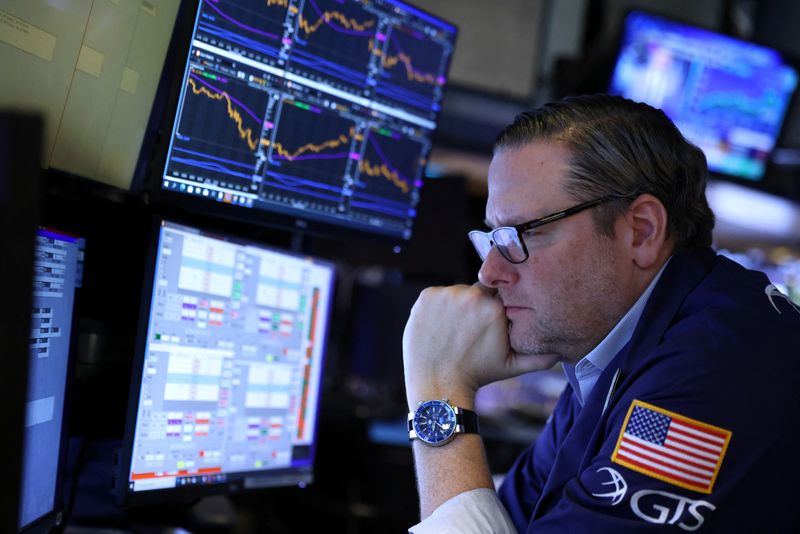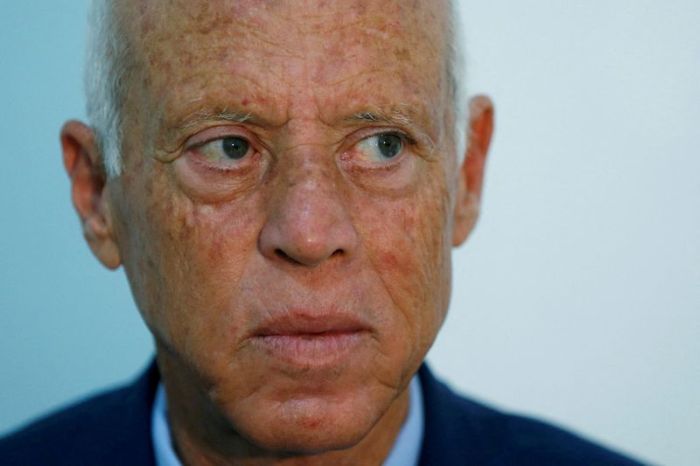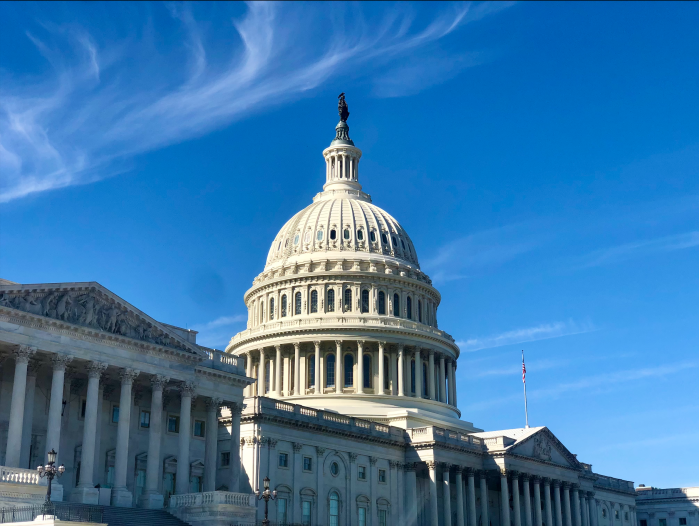NEW YORK (Reuters) – Oil and other commodities prices soared while global shares tanked on Monday as the United States said it was willing to ban Russian oil imports, stoking investor fears over inflation and slowing economic growth.
Brent, the international benchmark, briefly hit more than $139 a barrel, its highest level since 2008. Nickel prices rocketed 90%, gold broke through $2,000 an ounce and wheat jumped to a 14-year high, as industrial buyers and traders scrambled amid supply disruptions linked to Russia’s invasion of Ukraine.
Euro zone real government bond yields fell sharply as surging energy prices fueled concerns that global economies are at risk of stagflation, a condition in which prices soar while growth stagnates.
Germany’s 10-year and 30-year inflation-linked government bond yields fell to new record lows, while the benchmark U.S. 10-year Treasury yield rose slightly after touching its lowest level in two months.
Wall Street’s main indexes fell sharply, with the Nasdaq Composite confirming it was in a bear market, and the pan-European STOXX 600 index cut losses of around 3% to close at a near one-year low.
President Joe Biden’s administration is willing to move ahead with a U.S. ban on Russian oil imports even if European allies do not, two people familiar with the matter told Reuters.
Russia calls its actions in Ukraine a “special operation,” but it has triggered sweeping sanctions by the United States and Europe that aim to isolate Russia to a degree never before experienced by such a large economy.
“The crippling effect of oil prices above $130 would send many European economies into a recession,” and that scenario caused European stocks to move into bear market territory, said Edward Moya, senior analyst at OANDA.
“The U.S. can handle not having any Russian energy supplies, but that is not the case for Europe.”
The Dow Jones Industrial Average fell 797.42 points, or 2.37%, the S&P 500 lost 127.79 points, or 2.95% and the Nasdaq Composite dropped 482.48 points, or 3.62%.
MSCI’s gauge of stocks across the globe shed 2.73%.
Brent crude futures settled up 4.3% at $123.21 a barrel. U.S. crude settled up 3.22% at $119.40 a barrel. [O/R]
Bank of America analysts estimate that the loss of Russia’s 5 million barrels a day could cause crude oil prices to hit $200 a barrel.
The Russia-Ukraine conflict also weighed on talks aimed at reviving Iran’s nuclear deal with major powers, after Tehran accused Russia of “interference.”
Nickel prices, which reached $55,000 a ton earlier in the trading session, last traded up 76% at $50,925 a ton.
Russia supplies around 10% of the world’s nickel, and investors fear that Western sanctions against Russia could disrupt air and sea shipments of commodities produced and exported by Russia.
The conflict and broader supply-chain disruptions provide a challenging backdrop for upcoming central bank meetings, ANZ economist Finn Robinson wrote in a note to investors.
“Policy makers will need to safeguard the smooth transmission of monetary policy whilst also shoring up their inflation credentials at a time of surging inflation pressures and growing evidence of second round effects,” Robinson wrote.
A majority of economists polled by Reuters now expect the European Central Bank will wait until the end of the year to raise interest rates.
In the United States, investors are closely watching the consumer prices report due out on Thursday. The data is expected to show core U.S. CPI for February rose 6.4% year-on-year, up from 6% in January.
A hotter reading will likely seal a Federal Reserve rate hike later this month.
Traders now see a 99% probability of a 25 basis-point rate hike by the Fed at its March meeting, while seeing a 1% chance of no change in rates.
The dollar index, which measures the value of the greenback against six global peers, was last up 0.33% at 99.24.
The euro was down 0.7% against the dollar at $1.08575.
(Reporting by Elizabeth Dilts Marshall in New York; Additional reporting by Lawrence White in London and Wayne Cole in Sydney; Editing by Lisa Shumaker and Matthew Lewis)























